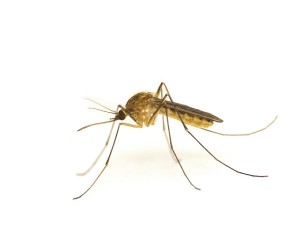 HYANNIS – After the detection of Eastern Equine Encephalitis infected mosquitoes in Falmouth and Bourne over the last few weeks, the Cape Cod Mosquito Control Project is reminding Upper Cape residents to take precautions to avoid bites.
HYANNIS – After the detection of Eastern Equine Encephalitis infected mosquitoes in Falmouth and Bourne over the last few weeks, the Cape Cod Mosquito Control Project is reminding Upper Cape residents to take precautions to avoid bites.
EEE is a rare but serious illness that is spread by the bite of an infected mosquito.
While EEE can infect people of all ages, people under the age of 15 and over 50 are at the greatest risk for serious illness.
Two people this summer have been identified to have been infected with EEE in Massachusetts, the first time since 2013.
One of the cases was a man older than 60 in southern Plymouth County.
Cape Cod Mosquito Control Project Assistant Superintendent and Entomologist Gabrielle Sakolsky said the mosquitoes that carry EEE are most active between dusk and dawn and that people should avoid being outdoors at those times.
“If you are going to be out during those times, definitely choose a repellent that is an EPA registered repellent,” Sakolsky said.
She said if the label has the EPA registration number than the product is safe to use and effective in protecting against mosquitoes.
Long sleeves and pants are recommended.
Residents should check to make sure door and window screens do not have holes and yards should be checked for any standing water.
“Any little bit of standing water in your yard, that water that is in a puddle, in a tarp or in a bucket is habitat of mosquitoes to lay their eggs in and develop in,” Sakolsky said.
“This time of year with that hot, humid weather mosquitoes will go from the egg stage to flying adults that are biting within a week.”
Sakolsky said the mosquito population has been very high this season.
“We had water all through the winter in swamps – things that over the past few years have dried up,” she said.
“We have a lot of species that we haven’t seen in these numbers for years. Historic high numbers.”
Sakolsky said the high population helps in the transmission and amplification of EEE.
Scientists knew last fall that species were going to be in water through the winter and that populations would be higher.
“That paired with the fact that they had a few positive tests for EEE, not in Barnstable County but, in the middle of state last fall sort of gave us a heads up that this was going to be a bad year,” Sakolsky said.
A second round of aerial spraying in Plymouth and Bristol Counties began Wednesday night.
The Cape Cod Mosquito Control Project was organized in 1928, making it the first organized mosquito control project in the State of Massachusetts.
The project concentrates on controlling mosquitoes in their immature stages.
Barnstable County contains 50 square miles of salt marsh. There are an additional 5 square miles of fresh water swamps and 170 great ponds ranging from 10 to 650 acres.
The organization says it is a tremendous undertaking to control the mosquito breeding in Barnstable County.























